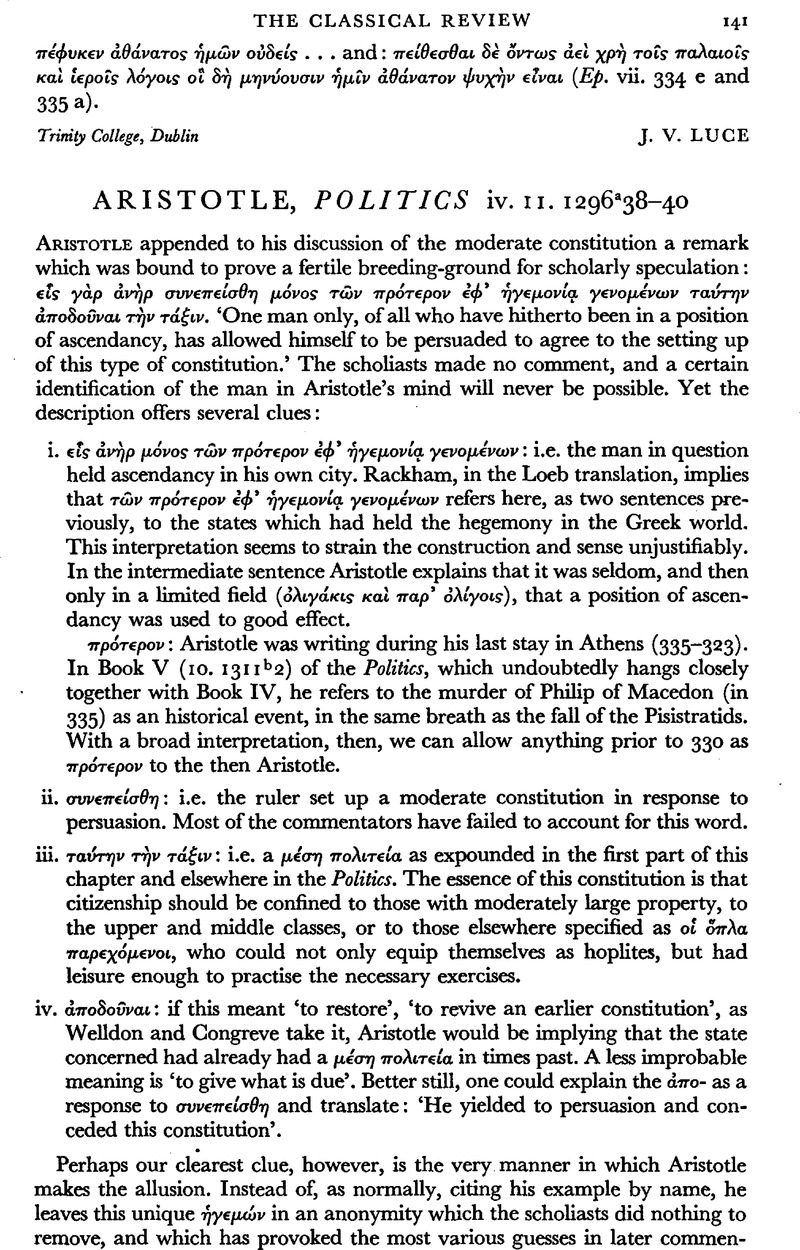Published online by Cambridge University Press: 13 February 2009

page 143 note 1 See Wormell, D. E. W., ‘The Literary Tradition concerning Hermias of Atarneus’, in Yale Classical Studies, v (1935), 78.Google Scholar
page 142 note 2 For Aristotle's relations with Hermias, see Jaeger, Aristotle (English translation), pp. 111–18; Von der Mühl in Pauly–Wissowa, R.-E., Supplementband iii, 1126 ff.; also Leaf, W., Proc. Class. Assoc., 1921, pp. 36 ff.;Google ScholarStrabo on the Troad, pp. 295–300. Leaf considers Hermias as pre-eminently a banker, whose political power was based mainly on his control of local finance. He relies chiefly on Strabo xiii. 57, Jaeger chiefly on Didymus' commentary. Mulvany, C., in C.Q., 1926, pp. 155 ff.Google Scholar, criticizes some details of the literary tradition.
page 143 note 1 See Wormell, op. cit., p. 59.
page 143 note 2 Callisthenes' encomium, quoted by Didymus, op. cit. 5. 64 ff.
page 143 note 3 Dittenberger, S.I.G. i, No. 120; Tod, Greek Historical Inscriptions, ii. 165. Tod's dating, 350 B.C. seems too early. The treaty was clearly made after Hermias' modification of his tyranny, and therefore after his association with the philosophers.
page 143 note 4 143 4 Leaf interprets οἱ ⋯ταῖροι as Hermias' partners in his banking business, which dominated the economic and therefore the political life of die district. For Tod they are the commanders of the garrisons stationed through Hermias' realm.
page 144 note 1 Philodem. Ind. Acad., ed. Meckler, S.22, col. v. 1 ff.: ![]() Didymus, op. cit. 5. 60:
Didymus, op. cit. 5. 60: ![]() .
.
page 144 note 2 Wonnell, op. cit., p. 78.